BA Primary Education (3-11) with recommendation for QTS (with Foundation Year)
Undergraduate
- Start date
- –
- Study mode
- –
- Course length
- –
- UCAS Code
- –
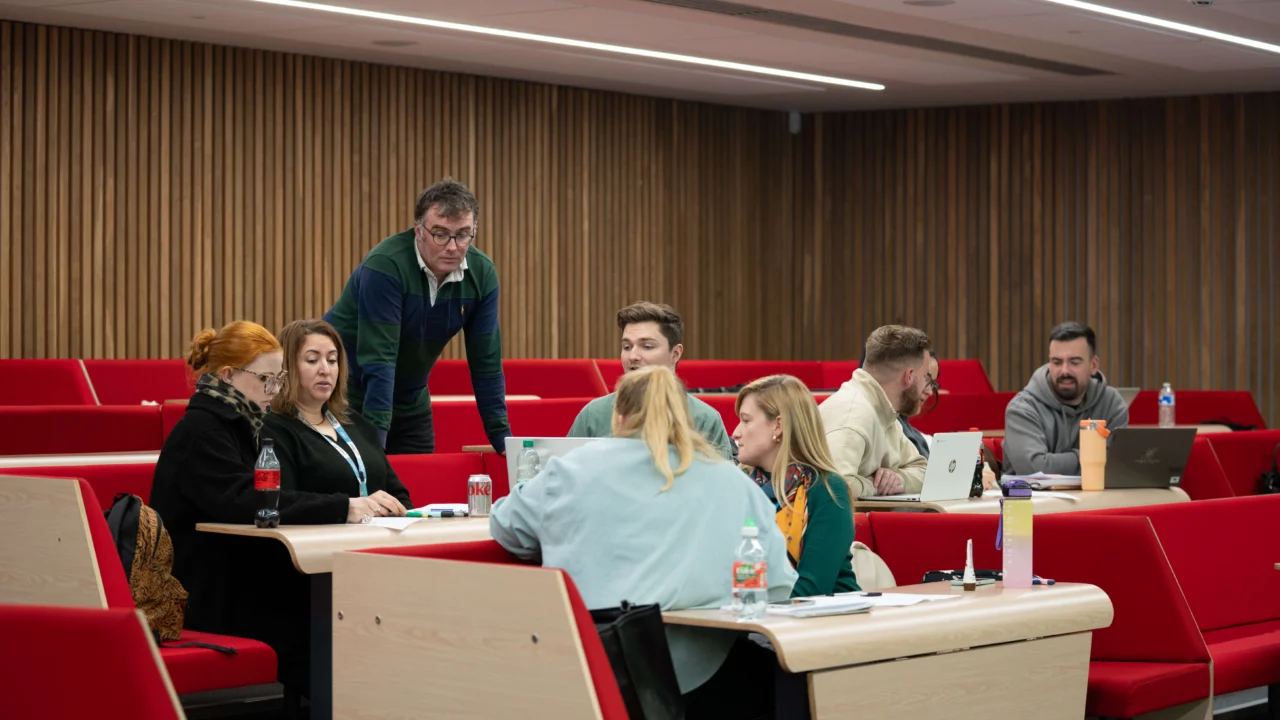
Interested in a different start date?
Course overview
Discover how professional development supports inclusive practice and classroom confidence.
The BA (Hons) Primary Education 3–11 with Recommendation for QTS at Birmingham Newman University offers an inspiring and values-led route into the teaching profession. If you are passionate about supporting children’s development and helping every learner flourish, this course provides both the academic grounding and practical experience you need. You will explore how children learn across the primary age range, while developing essential skills in lesson planning, classroom management and inclusive teaching.
From your first day, you will be part of a university community that empowers you to grow, reflect and lead with integrity.
Book a free consultation
Not sure which course fits your goals? Book a free consultation with an Academic Life Coach today
Foundation Year at Birmingham Newman University
The Foundation Year is the first year of a four-year undergraduate degree at Birmingham Newman University. It offers a flexible route into higher education for students who may not meet standard entry requirements or who are returning to study after time away. Whether you are exploring a new direction or looking to strengthen your academic foundations, this additional year of study provides the structure, support and space to help you succeed.
You’ll apply through UCAS for your chosen degree with Foundation Year. Once you’ve successfully completed the Foundation Year and met the progression criteria, you’ll move into Year 1 of your undergraduate course.
Who is the Foundation Year for?
This route is designed for students who:
• Are returning to education after a break
• Do not currently hold the qualifications for direct entry onto a three-year degree
• Want to build confidence and academic skills before starting undergraduate study
• Are seeking a structured and supportive introduction to university life
You’ll be part of a learning community that recognises your potential and supports your development from the very beginning. The Foundation Year is not just a pathway into university. It is a purposeful and personalised start to your academic journey.
What will I study?
The Foundation Year focuses on helping you become a confident, reflective and independent learner. You’ll begin by exploring how you learn and identifying strategies that work for you. You’ll also engage with wider themes such as identity, inequality and the human experience in a digital world. These topics encourage critical thinking and personal insight, while connecting across subject areas.
You’ll develop core academic skills including writing, research, digital literacy and communication. These are taught through seminars, workshops, online activities and one-to-one support. The aim is not only to prepare you for your chosen subject, but to help you feel connected to your learning and to the university community.
‘For someone returning to education after a hiatus, this foundation (year) was essential in helping me regain my academic footing and feel prepared for the challenges ahead.’ – Alix Wyatt, Birmingham Newman University Alumna
What happens after the Foundation Year?
Once you’ve successfully completed the Foundation Year and met the progression requirements, you’ll begin Year 1 of your undergraduate degree. You’ll already be familiar with the university environment, your subject area and the expectations of academic study, giving you a strong foundation to build on.
Why study this course?
This course is ideal for individuals who are passionate about making a difference in children’s lives and want to pursue a meaningful and rewarding career in education. Whether you are just beginning your journey into teaching or returning to study with experience, the BA (Hons) Primary Education 3–11 with Recommendation for QTS offers a values-led and professionally grounded route into the classroom. It combines academic depth with practical experience, enabling you to develop the knowledge, skills and confidence needed to support all learners.
With a strong emphasis on inclusive practice, reflective teaching and real-world relevance, the course prepares you to thrive in a variety of educational settings and contribute positively to school communities.
‘Undertaking this programme will not only train you to become a competent and confident primary school teacher, but it will also train you to become a Birmingham Newman teacher. A Birmingham Newman teacher has the child at the centre of everything they say and do.
The programme will equip you with a deep understanding of how children develop and learn as well as providing you with a range of current and research-led pedagogy to use to provide the best possible education for the children you teach in your rewarding career in teaching.’ Steve Patrick B.Ed (Hons) M.Ed PGCHE FHEA), Undergraduate – Primary ITE Programme Lead
Explore the Foundations of Effective Teaching
Throughout the course, you will study the full primary curriculum, including English, Mathematics, Science and foundation subjects, alongside essential areas such as child development, safeguarding and professional standards. You will also engage with key educational frameworks, including the National Curriculum, the Early Years Foundation Stage and SEND guidance, developing strategies to support diverse learners with care and confidence.
In the second year of the undergraduate programme, trainees undertake a placement within Special Educational Needs and Disabilities (SEND) or alternative provision. This experience broadens their understanding of inclusive practice and supports the development of skills for meeting diverse learner needs. It also provides valuable insight into specialist education pathways, helping trainees to explore potential future roles within SEND and alternative education contexts.
Practical experience is woven into your learning through school placements, ITAP weeks and interactive workshops that mirror the realities of classroom life. These opportunities help you to build your teaching toolkit, develop your professional identity and prepare for a wide range of roles in education.
Supportive and Personalised Learning
At Birmingham Newman University, you will be part of a close-knit and inclusive academic community that places your personal and professional development at the heart of everything we do. The course is delivered by experienced educators who are committed to supporting your growth as a reflective and confident practitioner.
With small group teaching, regular feedback and one-to-one mentoring, you will be encouraged to explore your strengths, overcome challenges and find your teaching voice. This supportive environment empowers you to take ownership of your learning and progress with clarity and purpose, whether you choose to work in mainstream, SEND or faith-based settings, or pursue further study or leadership roles.
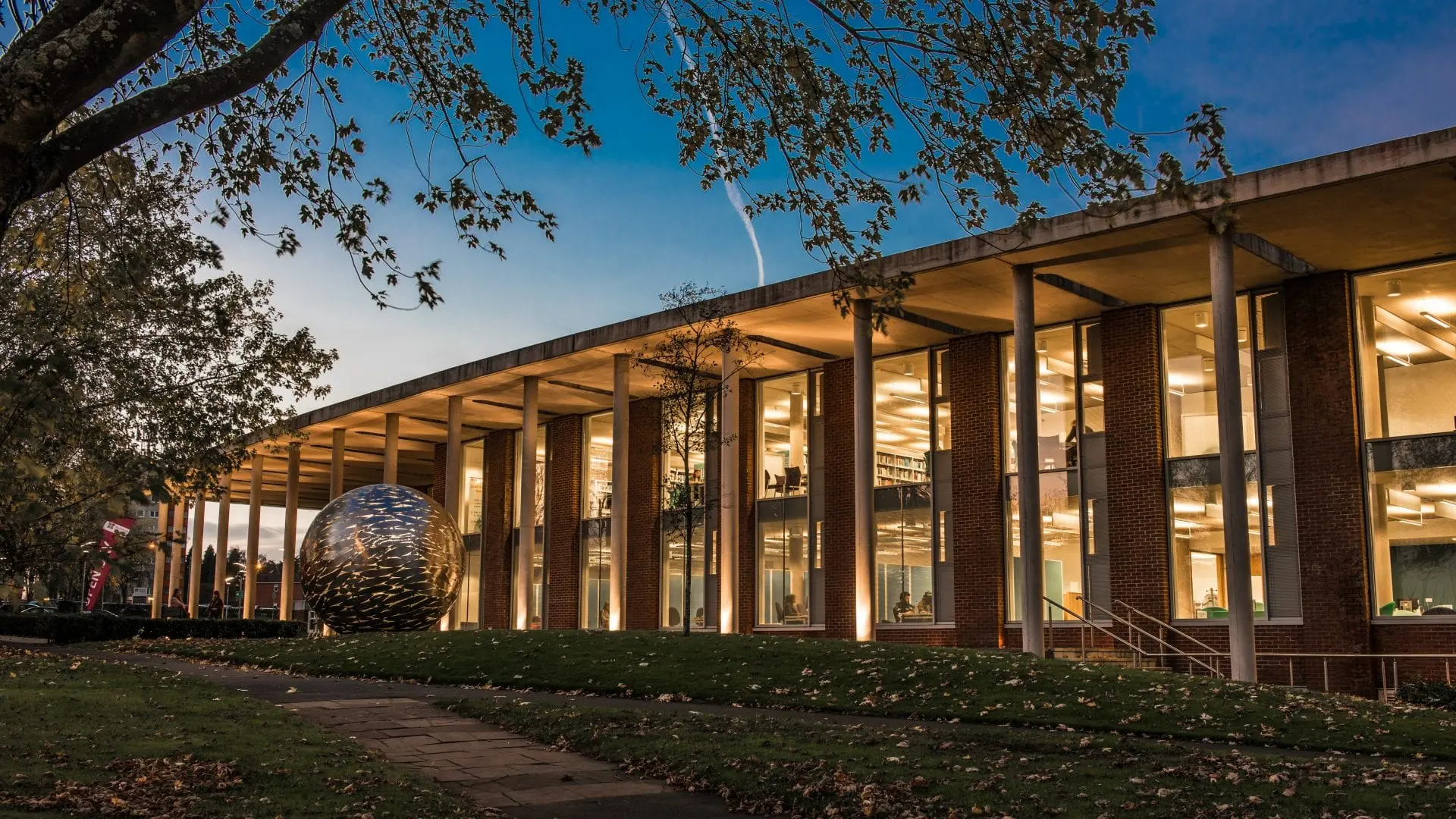
Got a question you’d like to ask?
Entry requirements
We welcome students from all backgrounds and accept a wide range of qualifications. If yours aren’t listed, don’t worry – our Admissions Team can help you explore your options. See full entry requirements.
Entry requirements, for UK home students, for September 2026 entry: 48 UCAS points.
Those with significant work and life experience of a complexity that demonstrates an aptitude to study at degree level, but with no formal qualifications, will also be favourably considered.
Different degree pathway options available at the end of the foundation year may have different additional entry requirements.
If you require any further information or clarification of entry requirements please contact our friendly, helpful Admissions department, who will be happy to help.
Specific GCSE requirements:
• GCSE/IGCSE English language and maths grades 9-4/A*-C or equivalent
• GCSE/IGCSE science grade 9-4/A*-C or equivalent
Other English Language qualifications are also accepted. Please contact admissions for further information.
Non-Academic Requirements:
Success at Interview. The Admissions team will use the course entry requirements, as well as your personal statement, reference and any work experience information, to shortlist and invite successful candidates for interview. Candidates will be assessed at interview on their motivation and understanding of the role of a teacher. You will also be required to complete an end of year interivew in order to progress onto year one.
Occupational Health Clearance. Candidates must receive a satisfactory occupational health clearance prior to commencing the course.
DBS Clearance. Candidates must receive a satisfactory Disclosure and Barring System check prior to commencing the course.
Fitness to Train to Teach Clearance. Candidates must receive a satisfactory Fitness to Train to Teach check prior to commencing the course.
Please contact Admissions if you have any questions.
Course fees
The tuition fee for academic year 2025/26 is: £5,760
Fees for the 2026/27 academic year are subject to change and will be published here on 9 February 2026.
Additional costs
The University will review tuition fees and increase fees in line with any inflationary uplift as determined by the UK Government, if permitted by law or government policy, in subsequent years of your course. It is anticipated that such increases would be linked to RPI (the Retail Price Index excluding mortgage interest payments).
Check out our blog/news/events

Vice-Chancellor Professor Jackie Dunne awarded MBE in New Year Honours
Vice-Chancellor of Birmingham Newman University receives an MBE for services to Higher Education.

Birmingham Newman University Celebrates Staff Achievements at Annual Awards
Birmingham Newman University celebrates its staff at the Annual Staff Awards Celebration.
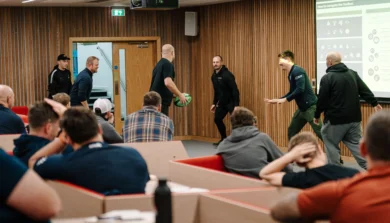
North Midlands RFU and Birmingham Newman University Join Forces to Support Grassroots Rugby Coaching
Birmingham Newman University hosts landmark rugby coaching event.

Andrew Csizmadia Named Fellow of the British Computer Society for Excellence in Computing Education
Andrew Csizmadia SFHEA, Emeritus Fellow in Computing Education at Birmingham Newman University, has been appointed…
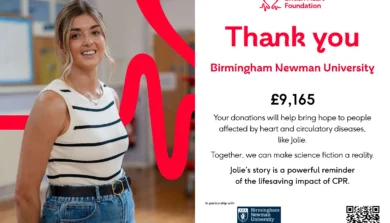
Birmingham Newman University Exceeds Fundraising Goal with British Heart Foundation Partnership
Birmingham Newman University has achieved an incredible milestone in its ongoing partnership with the British…

Book an open day
Find out about our next open day. Book now to secure your place.
Placement information
Placements are a central part of your development on this course, giving you the opportunity to apply your learning in real classroom settings across the full primary age range, including 3 to 7, 5 to 11 and 7 to 11. Each year, you will undertake school placements that are carefully structured to build your confidence and competence over time.
You will be supported throughout by experienced school-based mentors and university tutors who offer personalised feedback and guidance. In addition to placements, undergraduate trainees take part in six Intensive Training and Practice (ITAP) weeks across the three years of study, with two ITAPs per year. These focus on key areas such as behaviour management, assessment for learning, SEND inclusion and phonics and early reading. These experiences are designed to deepen your understanding of effective teaching and prepare you for the realities of the profession.

Studying and living in Birmingham
At Birmingham Newman University, you’ll enjoy the best of both worlds: a peaceful, green campus that creates the ideal setting for focused study and personal reflection, yet remains just eight miles from the vibrant city centre.
As the UK’s second-largest city, Birmingham is also one of the youngest and most diverse in Europe, offering a dynamic blend of culture, innovation and opportunity. From world-renowned museums and music venues to a thriving food scene alongside a growing business and tech sector, it’s a place where creativity and ambition naturally thrive.
Experience Birmingham: A City full of possibilities
Whether you’re discovering the Midlands for the first time or already know the area well, Birmingham provides a lively and inclusive environment for students. As one of the most energetic and multicultural cities in the UK, it’s a place where you can grow academically while developing personally. Its rich cultural heritage, creative energy and broad range of opportunities make it an inspiring backdrop for your university journey.
A City that loves great food
Birmingham is a brilliant place to explore diverse culinary experiences. You might wander through the famous Balti Triangle, sample global street food at Digbeth Dining Club or enjoy a relaxed meal by the canals in Brindleyplace. The city is also home to independent cafés, vegan-friendly eateries and countless hidden gems. Whether you’re grabbing a quick bite between lectures or planning an evening out, there’s always something new to discover.
Arts, culture and entertainment
The city pulses with creativity. You could catch live music at the O2 Academy, experience a world-class performance at the Birmingham Hippodrome or browse exhibitions at the Birmingham Museum and Art Gallery. Creative spaces like the Custard Factory showcase local talent while hosting events that celebrate innovation. With festivals, sporting fixtures and cultural celebrations taking place year-round, there’s never a shortage of things to enjoy.
Simple & convenient travel
Getting around Birmingham is straightforward thanks to its well-connected public transport system. Buses, trams and trains make it easy to reach campus, explore the city or travel further afield. Whether you’re commuting daily or heading off for a weekend adventure, transport is both accessible and affordable.
Life beyond the lecture Hall
Your time at Birmingham Newman University extends far beyond academic study. You’ll have the chance to join student societies, contribute to community projects or try something entirely new. The University’s supportive atmosphere encourages you to build confidence, develop practical skills and feel genuinely at home throughout your studies.
View our campus
What careers can I consider
Upon successful completion, you will be awarded Qualified Teacher Status (QTS), confirmed by the Department for Education. Birmingham Newman graduates are highly regarded across the UK for their creativity, commitment and sense of purpose.
Whether you choose to teach in mainstream, SEND or faith-based settings, or pursue leadership or further study, you will be equipped to make a meaningful difference in children’s lives. You’ll also join a dynamic network of educators who continue to support and inspire one another well beyond graduation.
Accreditations and exemptions
Upon successful completion of the course and demonstration of the Teachers’ Standards, you will be awarded Qualified Teacher Status (QTS), confirmed by the Department for Education.
Birmingham Newman University is recognised by Ofsted as a GOOD provider of Initial Teacher Education (2024), reflecting the quality of its academic teaching and placement support. While the course does not offer exemptions from other professional bodies, it provides a strong foundation for continued professional development, including progression to postgraduate qualifications such as the MA Education. It also opens pathways into leadership roles and specialist areas within the education sector.
Courses we think you'll also like

PGCE Primary (3-11) with recommendation for QTS (p/t)
- Start date:
- September 2026
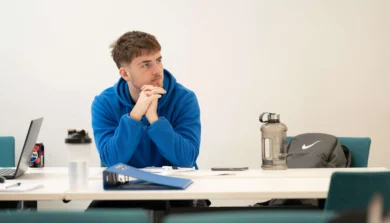
PGCE Secondary Religious Education with recommendation for QTS (part-time)
- Start date:
- September 2026

BA Secondary Education Physical Education 11-16 with Post 16 enhancement (with recommendation for QTS)
- Start date:
- September 2026

BA (Honours) Secondary Education Humanities (History, Geography and RE) 11-16 with Post 16 enhancement (with recommendation for QTS)
- Start date:
- September 2026
